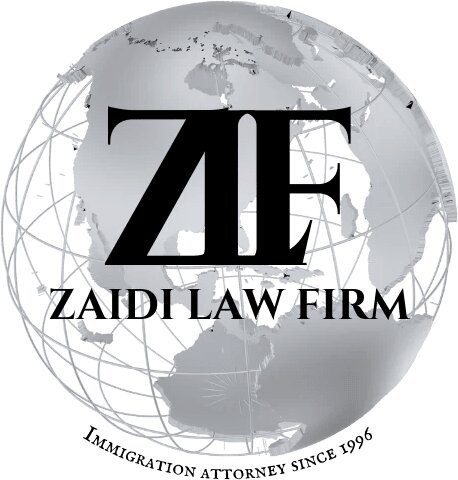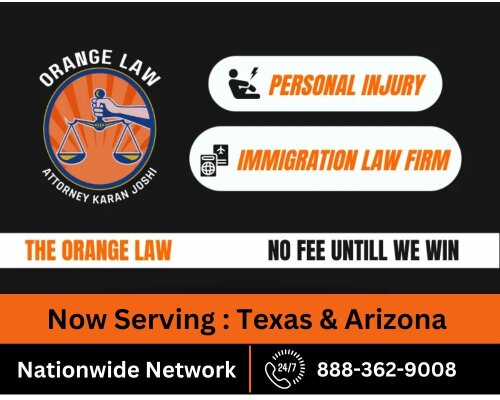Best Citizenship Lawyers in Missouri
Share your needs with us, get contacted by law firms.
Free. Takes 2 min.
Or refine your search by selecting a city:
List of the best lawyers in Missouri, United States
About Citizenship Law in Missouri, United States
Citizenship law in Missouri follows the federal law of the United States, as citizenship status is governed by federal rather than state law. However, Missouri plays a role in helping residents navigate the requirements and benefits of U.S. citizenship, such as issuing state identification, registering new citizens for voting, and providing access to certain state-level benefits. Understanding the pathway to citizenship is important for immigrants and those looking to clarify their status or rights as United States citizens within Missouri.
Why You May Need a Lawyer
Legal issues regarding citizenship can be complex and sensitive. Individuals in Missouri often seek legal assistance for matters involving naturalization, dual citizenship, loss of citizenship, and family-based citizenship applications. Other scenarios include defending against deportation, addressing the denial of citizenship applications, and requesting documentation or corrections from state and federal agencies. A qualified immigration lawyer can guide clients through these processes, help prepare necessary documentation, represent individuals at hearings, and address any challenges or complications that may arise.
Local Laws Overview
While citizenship is determined at the federal level, local Missouri laws and procedures may affect aspects such as access to public benefits, issuance of identification cards, voter registration, and employment benefits for citizens and legal residents. Missouri also has laws against unlawful employment of non-citizens and requires proof of citizenship for certain licenses and certifications. Additionally, local law enforcement agencies may collaborate with federal immigration authorities in some cases, which can impact individuals with unclear citizenship status.
Frequently Asked Questions
What is the process for becoming a U.S. citizen while living in Missouri?
The process involves filing an application for naturalization, attending a biometrics appointment, passing an English and civics test, and attending an interview. The entire procedure is governed by U.S. Citizenship and Immigration Services (USCIS), and applicants can reside anywhere in Missouri.
Does Missouri have any special programs or state paths to citizenship?
No. All citizenship applications are processed under federal law. Missouri residents must follow the same U.S. citizenship process as residents of other states.
Can I get legal help with my citizenship application in Missouri?
Yes. There are immigration attorneys and accredited representatives throughout Missouri who assist with citizenship applications and related legal needs.
What state benefits require proof of U.S. citizenship in Missouri?
Services such as Medicaid, certain state scholarships, and public assistance programs often require proof of citizenship or lawful residency.
Do I need to show proof of citizenship to vote in Missouri?
Yes. You must be a U.S. citizen to register to vote, and you are typically required to provide evidence such as a birth certificate or passport during registration.
Can Missouri deny a driver’s license to non-citizens?
Missouri issues driver's licenses to citizens, lawful permanent residents, and certain visa holders, provided they meet documentation requirements set by the state.
What happens if my citizenship application is denied while living in Missouri?
You may have the right to appeal or request a hearing on your application. Consulting with an immigration lawyer can help you understand your options and next steps.
Is dual citizenship recognized in Missouri?
Missouri recognizes dual citizenship according to U.S. federal law. The United States allows citizens to hold dual citizenship, though some countries do not.
How can I replace a lost Certificate of Naturalization in Missouri?
You must file Form N-565 with USCIS to request a replacement certificate. The process is the same in Missouri as in any other state.
Are there local Missouri organizations that help with citizenship issues?
Yes. Nonprofit organizations, such as legal aid societies and immigrant advocacy groups, provide assistance with citizenship and naturalization throughout Missouri.
Additional Resources
Individuals seeking more information or assistance on citizenship issues in Missouri may consider contacting:
- U.S. Citizenship and Immigration Services (USCIS) - For application forms and federal guidance.
- Missouri Department of Revenue - For identification and driver's license information.
- Legal Services of Eastern Missouri - Provides immigration legal assistance.
- International Institute of St. Louis - Offers citizenship classes and resources for immigrants.
- Missouri Immigrant and Refugee Advocates (MIRA) - Advocacy and support for immigrants throughout the state.
- Your local public library or community center - Many offer immigration help sessions or workshops.
Next Steps
If you or a loved one has questions about your citizenship status or needs legal guidance with the citizenship process in Missouri:
- Gather all pertinent documents, such as identification papers, visas, green cards, and previous applications.
- Consider scheduling a consultation with an immigration attorney who is licensed to practice in Missouri.
- Reach out to local nonprofit organizations or legal clinics that offer free or reduced-fee services.
- Monitor federal and state government websites for updates on immigration law and citizenship policies.
- Stay organized and proactive throughout the legal process to ensure you meet all requirements and deadlines.
Lawzana helps you find the best lawyers and law firms in Missouri through a curated and pre-screened list of qualified legal professionals. Our platform offers rankings and detailed profiles of attorneys and law firms, allowing you to compare based on practice areas, including Citizenship, experience, and client feedback.
Each profile includes a description of the firm's areas of practice, client reviews, team members and partners, year of establishment, spoken languages, office locations, contact information, social media presence, and any published articles or resources. Most firms on our platform speak English and are experienced in both local and international legal matters.
Get a quote from top-rated law firms in Missouri, United States — quickly, securely, and without unnecessary hassle.
Disclaimer:
The information provided on this page is for general informational purposes only and does not constitute legal advice. While we strive to ensure the accuracy and relevance of the content, legal information may change over time, and interpretations of the law can vary. You should always consult with a qualified legal professional for advice specific to your situation.
We disclaim all liability for actions taken or not taken based on the content of this page. If you believe any information is incorrect or outdated, please contact us, and we will review and update it where appropriate.
Browse citizenship law firms by city in Missouri
Refine your search by selecting a city.

















